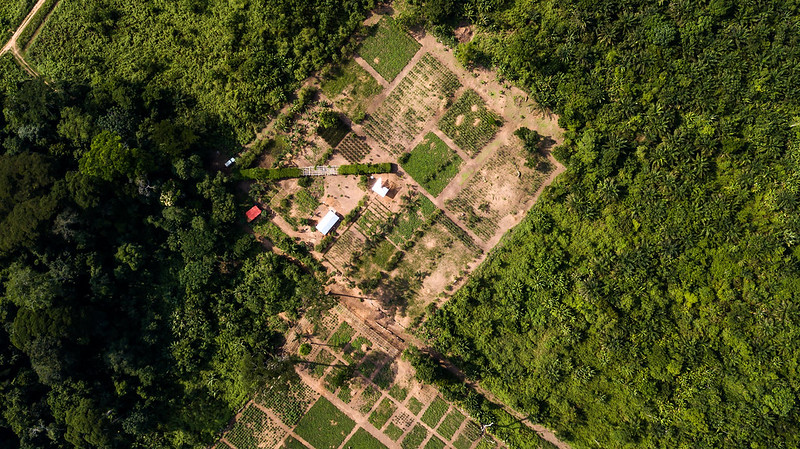Recent initiatives, constraints, and the way forward

Several commodity crops, including palm oil and cocoa, are produced in a number of Congo Basin landscapes. The agricultural production of these crops, by small farmers and private companies, is a direct cause of deforestation and forest degradation across Central Africa. However, products from these plants are useful for local and national economies – and for consumption beyond the African continent. Given the role of such commodities in tropical deforestation and forest degradation, it’s particularly critical to understand the dynamics and associated impacts of their value chains.
In the palm oil sector, global production is dominated by Southeast Asia, with products exported predominantly to Europe, India, China, the US, and Africa. However, while many African countries, such as those of the Congo Basin, have historically been net importers of palm oil, a number are now trying to increase domestic production of the commodity, both for national consumption and in order to export the surplus. The DRC is attempting to restore old and abandoned plantations, while Cameroon is aiming to expand the area occupied by palm oil plantations, and Gabon is pushing to produce enough surplus to export.
In the cocoa sector, two-thirds of global production comes from West Africa, with beans produced in cocoa orchards at the expense of forests. In the Congo Basin, however, cocoa is grown under forest shade, which allows for the possibility of creating productive ecosystems while leaving forests intact. As with palm oil, though, Congo Basin countries are aiming to increase their cocoa production, and these amplified productivity targets are putting pressure on the countries’ remaining forest. Across the globe, efforts are being made to protect these forests from that pressure at a range of levels, including at national (such as REDD+), international, (such as EU countries reducing imports linked to deforestation)and private-sector (such as zero-deforestation supply chain initiatives) scales, but these remain at early stages in the Congo Basin. This session aims to explore the deforestation and forest degradation pressure related to these commodities, identify what needs to be done to reverse deforestation, highlight constraints, and learn lessons from early experiences in the Congo Basin.
CIFOR-ICRAF speaker
Agenda
Introduction and keynote
Denis Sonwa, CIFOR-ICRAF
Presentations
Commodity dynamics in Sub-Saharan Africa
Elsa Ordway, UCLA
Palm oil sector at the local level in the Yangambi landscape
Eric BASOSILA, IFA Yangambi, and University of KISANGANI
Palm oil development in Gabon
TBD
Preconditions for responsible production of agro-commodities in the Congo Basin, and PROFOREST experience (efforts & constraints) in Congo Basin countries
Louis Defo, PROFOREST
WWF and commodity development in the Congo Basin
Cecile LACHAUX, WWF France
IDH experience: roadmap to deforestation-free cocoa in Cameroon
Elvis Ngwa Suh, IDH Cameroon
State of the art, from OFAC chapter
Richard Etyi Eba’a CIFOR-ICRAF
Discussion with the audience
Louis Defo (PROFOREST)

















